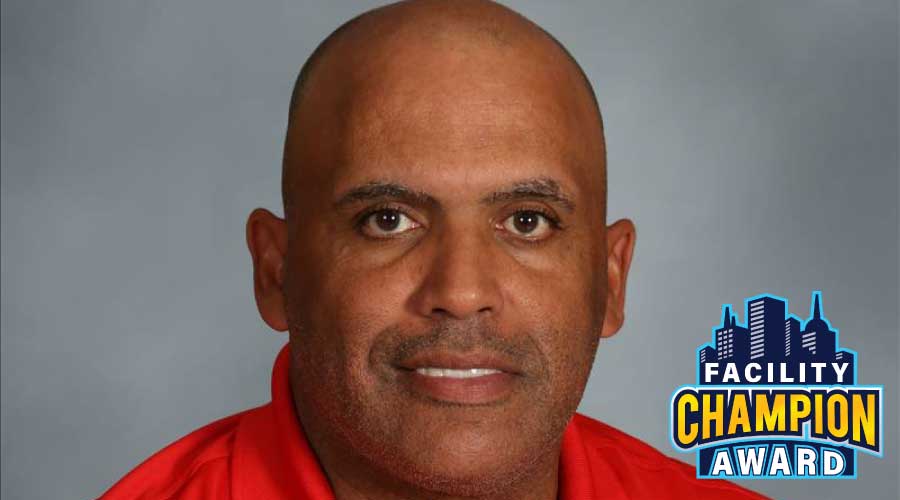
Facility Management Trends: Insights from Facility Influencer
Facility Influencer John Rimer of FM360 Consulting discusses his background in facilities management and where the industry will go in the future. October 19, 2023
Facilities management is an ever-evolving field with many diverse individuals working within it. To honor those driving the industry forward, FacilitiesNet launched its Facility Influencer program. John Rimer, president of FM360 Consulting, is a 25-plus year veteran of the industry. In our interview Rimer discusses his history in facilities management and where he sees the industry going in the future.
FacilitiesNet: What first got you into the facilities management field?
Rimer: I was a mechanical engineering student at Arizona State University and got an internship with Intel within their facilities. I originally wanted to design cars, but I got the internship and then they offered me a job out of college. So, I said alright, I will take that job. That got me into facilities, and I never left. I have been doing it now for 26 plus years, but we kind of joke in the industry that facilities management is kind of like a black hole. Once you get sucked in, it is hard to get out. To play off of comic books, everybody has got a different origin story, and mine was an internship.
FacilitiesNet: What was it like getting to work with and helping establish facility management programs for big names such as Microsoft and Charles Schwab?
Rimer: I have worked for a lot of large companies, both before starting FM360 and now doing FM360. It was a lot of fun and a lot of work. I think that you must always be in that state of learning. As I tell folks, you do not have to know everything. You just need to be smart enough to know that you are dumb enough to call somebody else that is smarter than you. So, I learned to lean a lot on those people around me to get the information that I needed to help develop the programs and drive them forward. Intel, Charles Schwab, Microsoft, all big organizations are just great opportunities to learn and get some of these programs in place to drive the overall facility strategy forward.
FacilitiesNet: What is FM360 Consulting and why did you start it?
Rimer: When I was working for my last company before starting FM360, I basically started the local admin chapter. This is when I lived in Idaho. So, we actually started a chapter that covered Idaho, Montana, Wyoming and we pulled in folks from Eastern Oregon and Eastern Washington, too. I think we would have been the largest chapter.
I went and got certified to teach the different certification classes. As I did that, I really started saying I like this and I was burning my vacation days to do that, much to my wife's chagrin. I had also been kind of wanting to go out on my own. I realized I can do training and then start doing consulting. Eventually I taught the building operator certification as well. I did a lot of training, traveling and meetings. Then that moved into building up the consulting side of the business.
The main reason that I got into it and why my team and I do it even today is because facility folks work hard, and they do not get the respect or the resources they need to do their job. So, if I go through training and through consulting, I can go and help these different facility managers. I can help them learn and go back to implementing or even help them implement some of these changes within their organization. They are going to raise the bar within their company and then collectively, we are raising the bar for the industry. It is like the old saying, a rising tide raises all ships.
“Facilitopia” is what I call my utopian view for facilities. That is a good part of what we need to do as facility professionals to continue to raise that bar and drive things forward.
FacilitiesNet: Where do you see facilities management going in the future?
Rimer: We have to get smarter. I have been doing this for 26 years and we have definitely made advances. However, if you look at the lineage of facility management, so many times it is labeled maintenance and that is such a narrow view of facilities.
So, we had maintenance and then eventually these things that break, they are kind of expensive and they actually are necessary for us to do what we do. Then you might need to manage those assets well, and so what they did is they took the maintenance people and moved them into management. Some of them that were moved into that management position did not understand the business side of it. That has evolved since then.
Over the last couple of decades, we have had more of that business mindset, that understanding of risk and that understanding of the impact to the bottom line. That is where I see us continuing to move more towards that executive level, where we are not a department that is within HR or within legal or wherever else. They want to show that facilities management has a seat at the executive table and we have been getting there.
We just need to be there consistently, where the standard is where you have people getting degrees in facilities management. Raising the visibility of facilities management is important, because there are buildings everywhere and we need people to manage those efficiently and wisely. That way we can be good stewards with those assets. That is where I see us going is continuing to move up the food chain, try to get to that executive table.
However, it is on us as facility folks to get there by raising that bar, by working smarter and by leveraging technology, because we have got less hands turning wrenches and it is only going to get worse. We must use that technology to do things smarter, better and faster. Then also get that data that we can use to justify improvements and resources to show that value of what we provide. It drives us towards that “Facilitopia” that I mentioned a little bit earlier.
Jeff Wardon, Jr. is the assistant editor for the facilities market.
Next
Read next on FacilitiesNet












